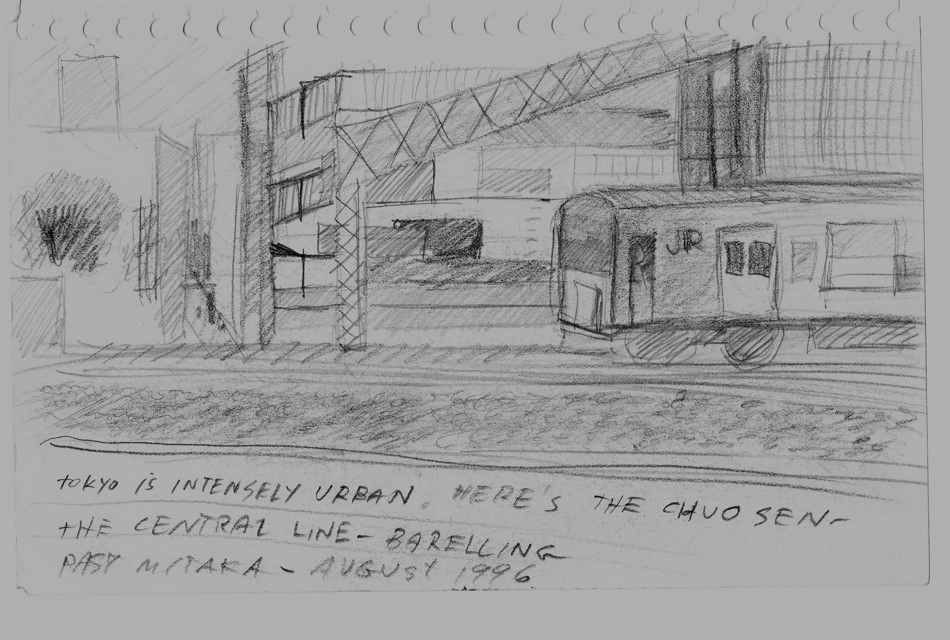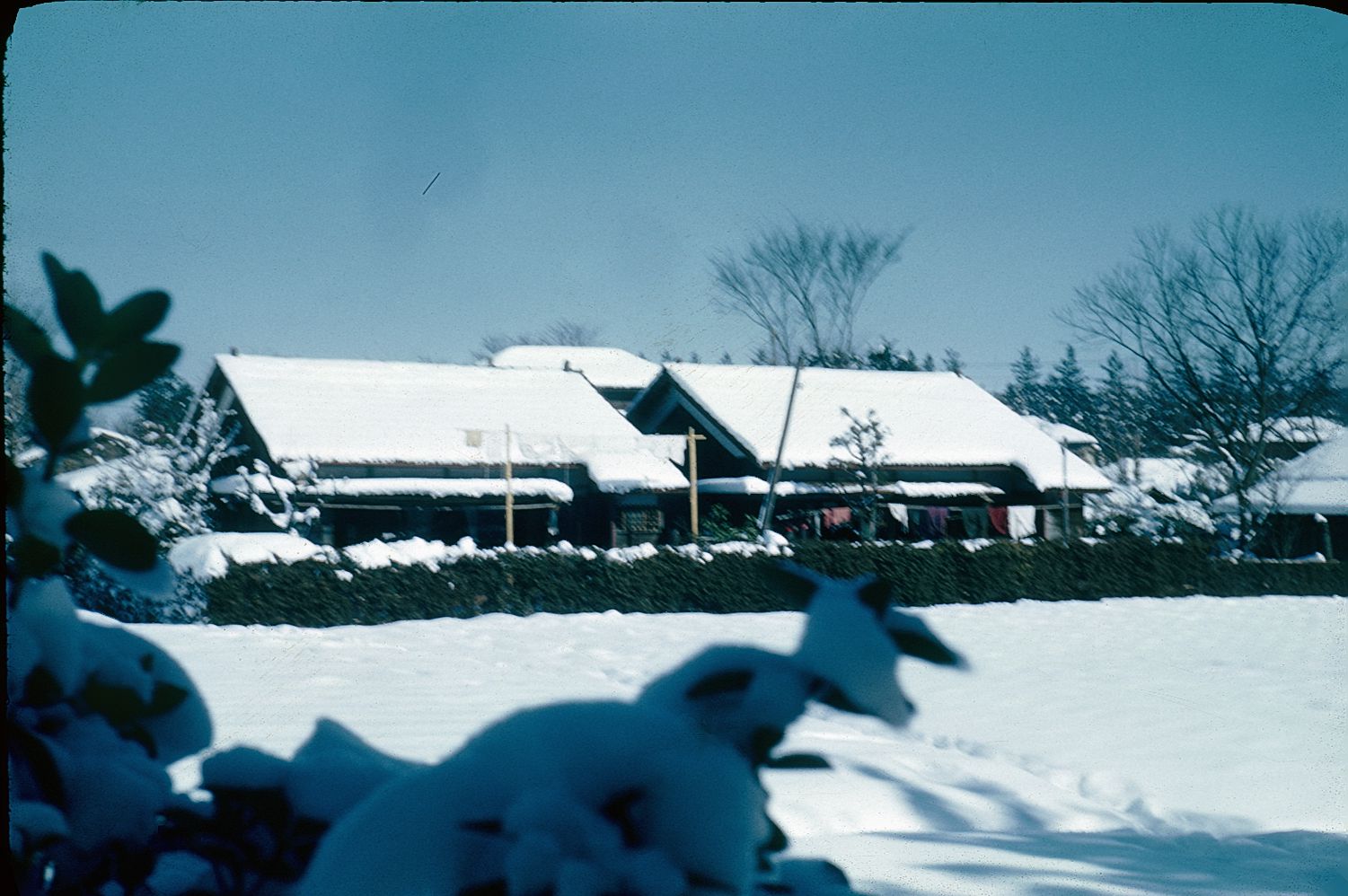I grew up in Tokyo, Japan during the Cold War, spending 12 out of my first 18 years in that great city, which I love dearly and is really my home town even though I live more than 10,000 miles away (in Washington, D.C.). My parents initially went to Japan as missionaries in 1947 and remained there, except for brief stints in Seoul, South Korea, and Geneva, Switzerland, until 1969. Tokyo means a lot to me (that’s me in the picture, at my yochien (nursery school). Tokyo is where I bought my first guitar, where I first got laid, where I first smoked cigarettes (which I quit 20 years ago), where I first listened to Bob Dylan, where I saw the biggest demonstrations I have ever seen in my life – basically where I first started living. A lot of my worldview was shaped there, riding the trains, watching ordinary people mass in the streets to protest the Japanese government’s utter subservience to US foreign policy and its complicity with the war in Vietnam, eating ramen and domburi delivered inporcelain bowls by wiry guys on bikes who picked them up the next morning from our back porch, watching people living in tiny spaces and cramped quarters but getting along very well; and so on. I still go back now and then, have good friends who live there, and often refer to my experience in my writings. Tokyo is part of my roots, it’s where I came from.
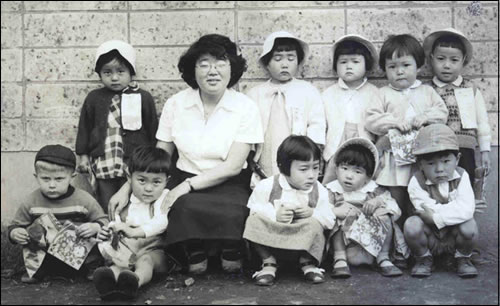
I grew up in Tokyo, Japan during the Cold War, spending 12 out of my first 18 years in that great city, which I love dearly and is really my home town even though I live more than 10,000 miles away (in Washington, D.C.). My parents initially went to Japan as missionaries in 1947 and remained there, except for brief stints in Seoul, South Korea, and Geneva, Switzerland, until 1969. Tokyo means a lot to me (that’s me in the picture, at my yochien (nursery school). Tokyo is where I bought my first guitar, where I first got laid, where I first smoked cigarettes (which I quit 20 years ago), where I first listened to Bob Dylan, where I saw the biggest demonstrations I have ever seen in my life – basically where I first started living. A lot of my worldview was shaped there, riding the trains, watching ordinary people mass in the streets to protest the Japanese government’s utter subservience to US foreign policy and its complicity with the war in Vietnam, eating ramen and domburi delivered inporcelain bowls by wiry guys on bikes who picked them up the next morning from our back porch, watching people living in tiny spaces and cramped quarters but getting along very well; and so on. I still go back now and then, have good friends who live there, and often refer to my experience in my writings. Tokyo is part of my roots, it’s where I came from.
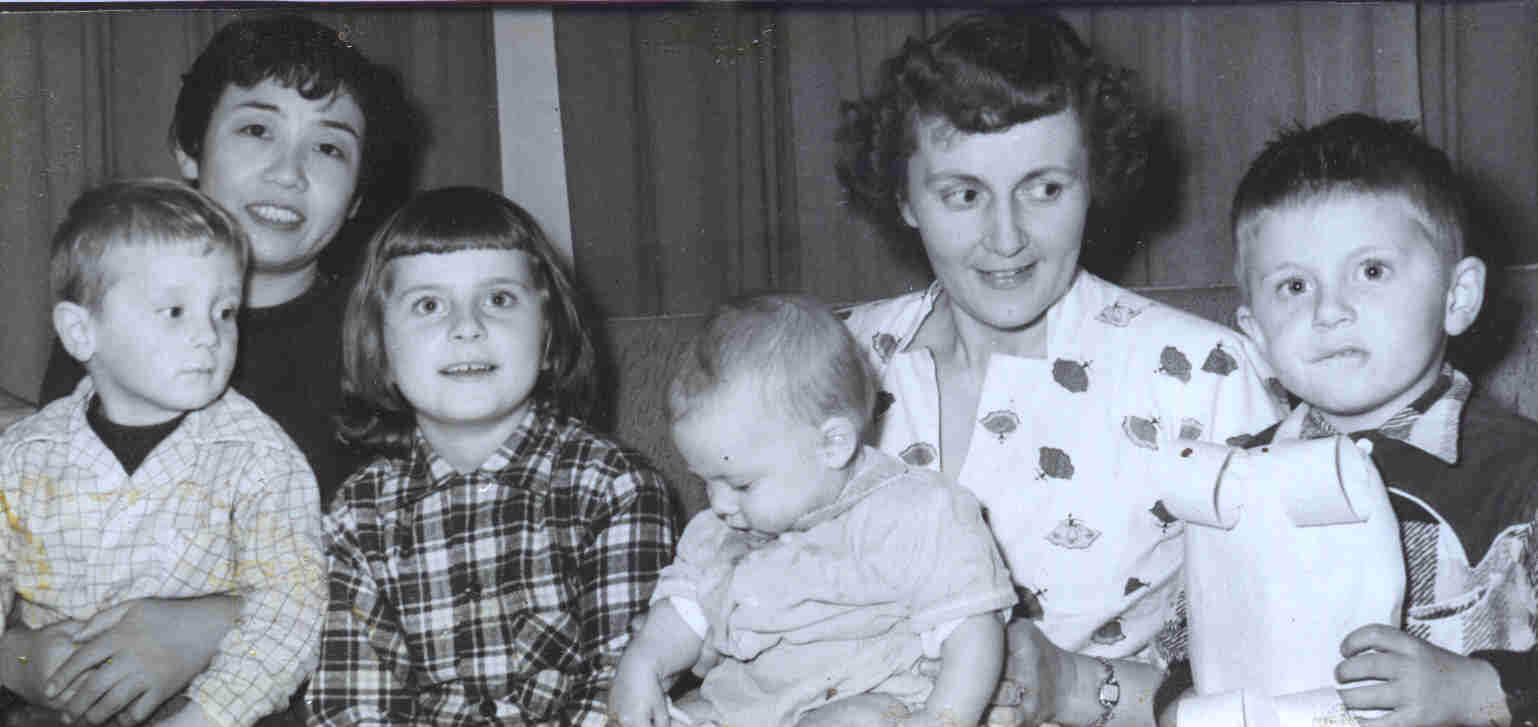
Kichijoji
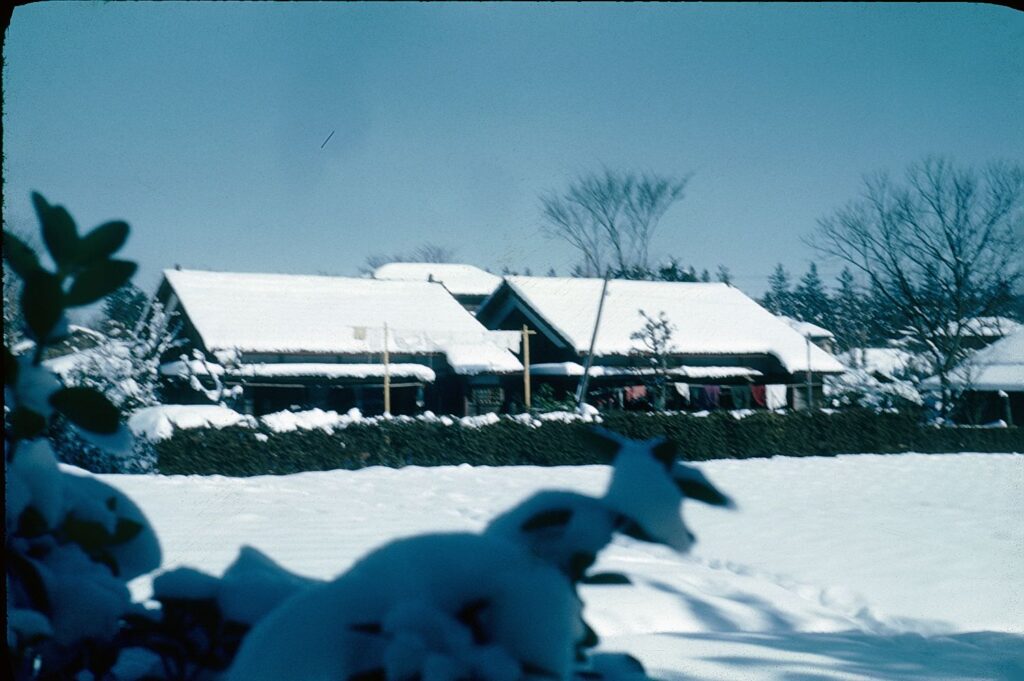
My first house was in Kichijoji in the western outskirts of Tokyo, now a hot spot for jazz and nightlife. That lower roof was over a room that opened into a veranda. When it was warm, I used to sit on the little porch while my mother sat at her desk typing the hundreds of letters they sent to family and friends.
That’s where I was living when my mother put me in yochien around the age of four. I didn’t like it much, except for those bright color comic books I read. My Japanese language skills got pretty good and I never remember having any trouble communicating with my buds.
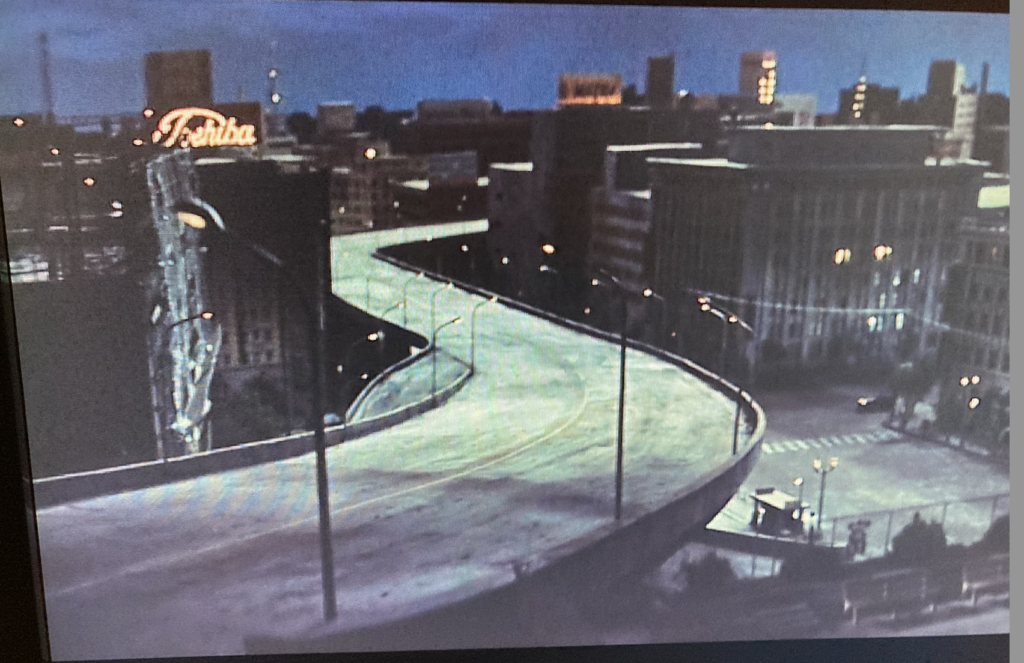
In 1957 we moved to a new house in the Hachiyama section of Shibuya-ku (ward). It was built for my dad and mom by Church World Service and the World Council of Churches, which funded most of the work my father did with war refugees and people suffering from hunger and natural calamities. This was where I first became conscious of the terrible bombing Tokyo had experienced during the Great War, which was not so long ago. Our house was built on the foundation of a home that had been razed to the ground in the massive raid of B-29s on the night of March 11, 1945, when over 100,000 people died in the most gruesome ways; in our backyard was the old cement fireplace from the old house. Next door lived a British businessman named Blake and his wife. They were always very kind to us and served us hot cocoa and cookies every Christmas Eve.
I had a tiny little room on the second floor, and looking out, I could see the lights of Shibuya, just 2 miles away or so, and the dramatic lights of the Toshiba Company, one of the largest electronic companies in Japan that I later found out was partly owned by General Electric and the Morgan Family.
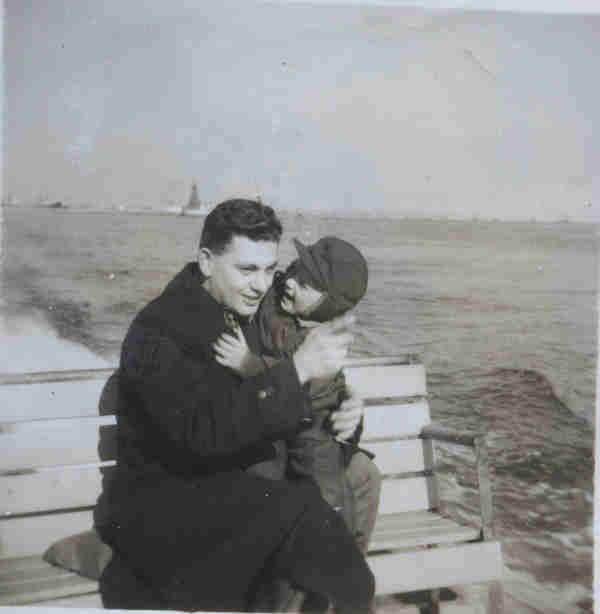
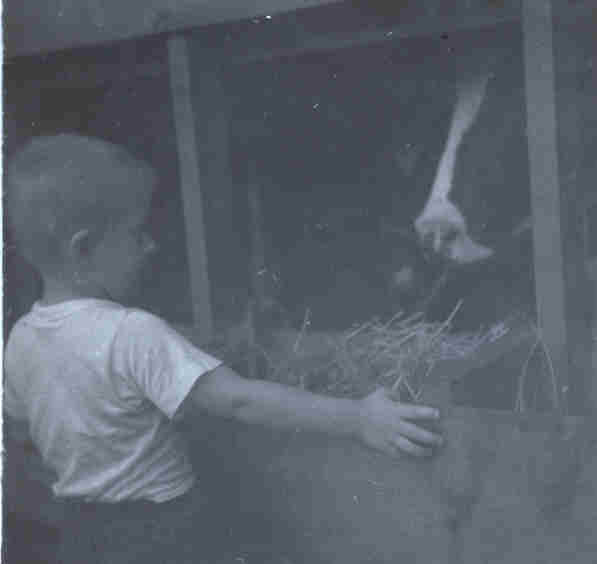
One of my earliest memories is my dad taking me to Yokohama to meet the cows coming in from the USA, donations from the US government distributed in Japan by Church World Service, the nation’s largest private relief organization. It distributed something like 60 percent of the food relief delivered to Japan in the immediate aftermath of World War II.
Somewhere along the line, I picked up some drawing skills, some of it from the Japanese manga and graphic novels and literature I grew to love. In the 1990s I began to draw a lot, describing bits and pieces of my life growing up in Japan and my observations upon returning to Tokyo as a journalist.
